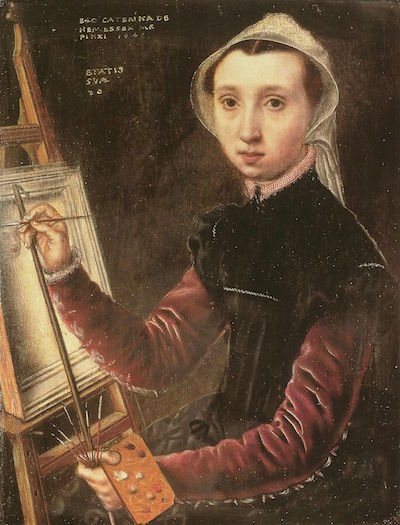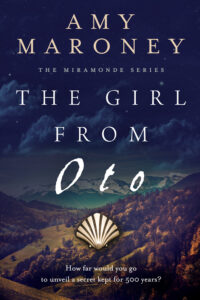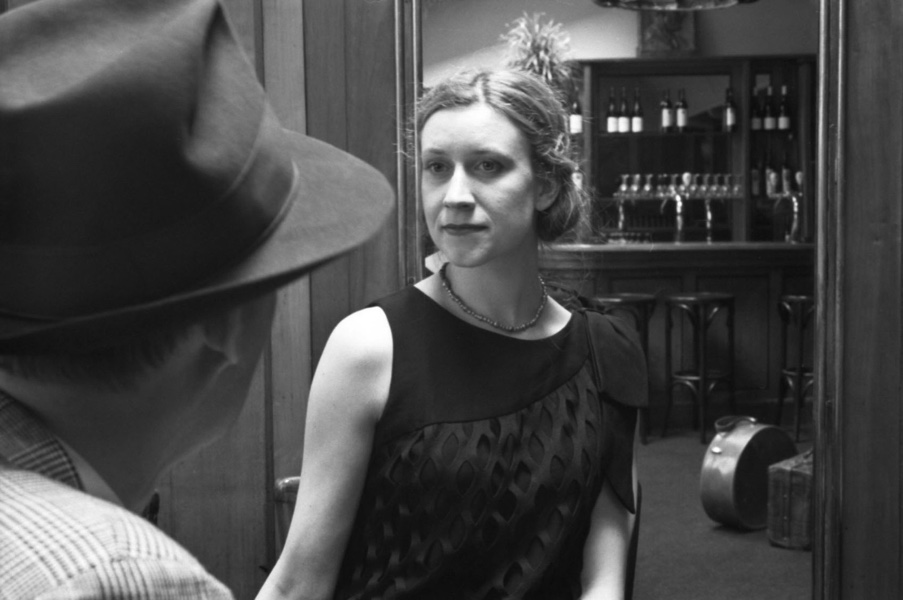 The end. It’s the end of the challenge! The end. It’s the end of the challenge!
Yes, I feel a certain relief, but I’m also energised.
‘Next month’ takes us into the third week in November. I won’t be doing NaNoWriMo when people aim to churn out 50,000 words as I find it too organised, but I will be aiming to get 1,000-1,500 words a day under my belt. At 20,000 words into the new book, I’m getting into the feel of it; the characters have come to life and are running the story. This is a magic moment. (I let them do this for a while, then rein them in when they try to take the whole thing over. 😉 )
So perhaps I’ll be up at 55,000-60,000 words by the end of November and 80-85,000 by the end of the year.
Next month, on 17 November to be precise, my new 12,000-word Roma Nova story in the Betrayal anthology will be published.
And there may be another book surprise on the horizon by then. Who knows?
Thank you so much for following this 30-day writing journey. I hope I’ve made you smile as well as entertained you.
Writing challenges so far:
Day 29: Best accomplishment this month?
Day 28: The saddest writing/reading thing this month
Day 27: What’s your favourite trope?
Day 25 & 26: Favourite books as child and adult
Day 24: What to write next
Day 23: What did you write last?
Day 22: What’s your current word count?
Day 21: My preferred genre
Day 20: Characters’ favourite food (and drink!)
Day 19: Characters’ pastimes
Day 18: Characters’ pet peeves(!)
Days 16 & 17: Favourite outfits (combined)
Day 15: The many-hatted author
Day 14: Show your workplace
Day 13: A funny family story. Or not
Day 12: Early bird or night owl?
Day 11: Favourite writing snacks/chocolate porn
Day 10: Post an old picture of yourself
Day 9: Post 5 random facts about you
Day 8: What’s your writing process?
Day 7: Introduce your ‘author friend’
Day 6: How the writing all began
Day 5: What inspired the book I’m working on
Day 4: The setting for the new Roma Nova book
Day 3: Introducing the main characters Julia and Apulius
Day 2: Introduce your work in progress
Day 1: Starting with revealing information
Alison Morton is the author of Roma Nova thrillers – INCEPTIO, PERFIDITAS, SUCCESSIO, AURELIA, INSURRECTIO and RETALIO. CARINA, a novella, and ROMA NOVA EXTRA, a collection of short stories, are now available. Audiobooks are available for four of the series. NEXUS, an Aurelia Mitela novella, is now out.
Find out more about Roma Nova, its origins, stories and heroines… Download ‘Welcome to Roma Nova’, a FREE eBook, as a thank you gift when you sign up to Alison’s monthly email newsletter. You’ll also be first to know about Roma Nova news and book progress before everybody else, and take part in giveaways.
If you enjoyed this post, do share it with your friends!Like this:Like Loading...
 Hahaha! Actually, it will be finishing this challenge. 😉 Hahaha! Actually, it will be finishing this challenge. 😉
Writing (nearly) daily posts interspersed with posts from some fabulous guests has really exercised my writing muscles. Writing short, hopefully sharp, pieces to a timetable means you gain focus and commitment. Long-form writing like novels can lead to a certain complacency so these blog posts have enabled me to write tighter and quicker.
But strangely, I’ve also increased the word count on my novel-in-progress quite nicely at the same time as well as writing four quite involved guest posts, my monthly newsletter and an article on writing for a local English language magazine.
A collective accomplishment has been the cover reveal of Betrayal and start of marketing campaign in collaboration with the eleven other historical fiction writers.
Overall, it’s got me back into the writing groove after a rather dull and depressing summer in Covid-19 land. I think that’s a good enough accomplishment.
Oh, and I’ve been to the hairdresser again.
Writing challenges so far:
Day 28: The saddest writing/reading thing this month
Day 27: What’s your favourite trope?
Day 25 & 26: Favourite books as child and adult
Day 24: What to write next
Day 23: What did you write last?
Day 22: What’s your current word count?
Day 21: My preferred genre
Day 20: Characters’ favourite food (and drink!)
Day 19: Characters’ pastimes
Day 18: Characters’ pet peeves(!)
Days 16 & 17: Favourite outfits (combined)
Day 15: The many-hatted author
Day 14: Show your workplace
Day 13: A funny family story. Or not
Day 12: Early bird or night owl?
Day 11: Favourite writing snacks/chocolate porn
Day 10: Post an old picture of yourself
Day 9: Post 5 random facts about you
Day 8: What’s your writing process?
Day 7: Introduce your ‘author friend’
Day 6: How the writing all began
Day 5: What inspired the book I’m working on
Day 4: The setting for the new Roma Nova book
Day 3: Introducing the main characters Julia and Apulius
Day 2: Introduce your work in progress
Day 1: Starting with revealing information
If you enjoyed this post, do share it with your friends!Like this:Like Loading...
 My guest this week is Amy Maroney who lives in the Pacific Northwest of the U.S. with her family. She spent many years as a writer and editor of nonfiction before turning her hand to historical fiction. When she’s not diving down research rabbit holes, she enjoys hiking, drawing, dancing, traveling, and reading. She’s the author of the Miramonde series: The Girl from Oto, Mira’s Way, and A Place in the World. Currently, she’s working on a new series set in and around medieval Rhodes, Greece. My guest this week is Amy Maroney who lives in the Pacific Northwest of the U.S. with her family. She spent many years as a writer and editor of nonfiction before turning her hand to historical fiction. When she’s not diving down research rabbit holes, she enjoys hiking, drawing, dancing, traveling, and reading. She’s the author of the Miramonde series: The Girl from Oto, Mira’s Way, and A Place in the World. Currently, she’s working on a new series set in and around medieval Rhodes, Greece.
Amy is one of my fellow authors of Betrayal, 12 historical fiction stories, due out 17 November. Here she shows just how a fascination with an aspect of history can start and from there leads to a successful historical fiction series.
Over to Amy!
 Self-portrait Caterina van Hermessen Nearly a decade ago, in a dimly-lit hallway at Oxford’s Magdalen College, I stumbled across a sixteenth-century portrait of a woman attributed to female artist Caterina Van Hemessen. I was stunned. After visiting many museums full of Renaissance-era portraits and learning about art history as a college student, I had somehow never heard of female old masters. But now, before my own eyes, was evidence that there were women painters in those days. I soon learned that because women’s work wasn’t valued, their paintings were often attributed to men or kept anonymous. I became obsessed with the lost stories of these women—and I wrote a historical mystery series on the topic.
My Miramonde series tells the story of a Renaissance-era woman artist and a modern-day scholar who are linked by a 500-year-old mystery. In Book 1, The Girl from Oto, the heroine of the series is born into a ruthless and violent noble family; her mother names her Miramonde, ‘one who sees the world.’ Raised in a convent, Mira becomes an extraordinary artist—never dreaming she will one day fulfill the promise of her name.
Mira’s modern-day counterpart, Zari Durrell, is a young American scholar doing research in Europe who discovers traces of a mysterious woman artist in several sixteenth-century paintings. Soon she’s following a path through history to Mira herself. But the art world ignores her findings, dazzled by a rival academic’s claim that the portraits were in fact made by a famous male artist.
False attribution to male artists was just one of the obstacles encountered by women artists throughout history. For example, Da Vinci was celebrated for his anatomically precise work. He was famous for his detailed observations of naked bodies. His female contemporaries, on the other hand, were barred from observing nude models. Is it any surprise, then, that women artists of the past were criticized for their inferior figurative work? This lack of opportunity did not stop them from making art, though. Many of them focused on—and excelled at—the still life.
 Self-portrait Lavinia Fontana One of the other challenges facing women artists of the past is that they’ve been stuffed into basements and attics, relegated to the dusty archives of Europe’s great museums. Even if museums own work by women, they rarely exhibit it. That’s why the Prado’s show featuring Clara Peeters in 2016 was so groundbreaking. The Prado had never showcased a female artist before, despite its 200-year-old history. It was only after a curator’s wife asked him if there were any paintings in the place by female artists that Flemish artist Peeters’ work was retrieved from the basement. The Peeters exhibit was so successful that in 2019 the Prado hosted another show featuring two female old masters: Sofonisba Anguissola and Lavinia Fontana.
As scholarship about female old masters increases and public interest in these women grows, so does the value of their paintings. Italian old master Artemisia Gentileschi is the shining star in this trend, with her works now commanding millions. A blockbuster exhibition featuring Gentileschi hangs at the National Gallery in London until January 2021. The final book in my Miramonde series begins with a quote from Artemisia herself that speaks for other women artists whose voices languish in the shadows of history: “I will show your illustrious Lordship what a woman can do.”
Brava! What a revealing story.
About Amy’s work
 A Renaissance-era female artist and an American scholar. Linked by a 500-year-old mystery… A Renaissance-era female artist and an American scholar. Linked by a 500-year-old mystery…
1500: Born during a time wracked by war and plague, Mira grows up in a Pyrenees convent believing she is an orphan. When tragedy strikes, Mira learns the devastating truth about her own origins. But does she have the strength to face those who would destroy her?
2015: Centuries later, art scholar Zari unearths traces of a mysterious young woman named Mira in two 16th-century portraits. Obsessed, Zari tracks her through the great cities of Europe to the pilgrim’s route of Camino de Santiago – and is stunned by what she finds. Will her discovery be enough to bring Mira’s story to life?
Find The Girl from Oto, the story of a Renaissance-era female artist and the modern-day scholar on her trail, on Amazon and other online stores here.
To receive a free prequel novella to the Miramonde series, join Amy Maroney’s readers’ group at www.amymaroney.com.
Connect with Amy
Follow her on BookBub at https://www.bookbub.com/profile/amy-maroney
Facebook: https://www.facebook.com/amymaroneyauthor/
Twitter: https://twitter.com/wilaroney @wilaroney
Instagram @amymaroneywrites
Alison Morton is the author of Roma Nova thrillers – INCEPTIO, PERFIDITAS, SUCCESSIO, AURELIA, INSURRECTIO and RETALIO. CARINA, a novella, and ROMA NOVA EXTRA, a collection of short stories, are now available. Audiobooks are available for four of the series. NEXUS, an Aurelia Mitela novella, is now out.
Find out more about Roma Nova, its origins, stories and heroines… Download ‘Welcome to Roma Nova’, a FREE eBook, as a thank you gift when you sign up to Alison’s monthly email newsletter. You’ll also be first to know about Roma Nova news and book progress before everybody else, and take part in giveaways.
If you enjoyed this post, do share it with your friends!Like this:Like Loading...
 Bit of a downer, this one, but I’m both sad and cross. Bit of a downer, this one, but I’m both sad and cross.
My reading tastes are pretty wide-ranging. This most important thing about any novel/novella or short story is the it’s a good story with well drawn characters and an enticing plot. I was brought up to finish a book before commenting on it, so however poor a start, I’ll plough on in a spirit of optimism.
I’ll read almost anything: from Pascal Mercier’s Night Train to Lisbon and Kafka’s The Trial to These Old Shades by Georgette Heyer and Dan Brown’s The Da Vinci Code. One genre I particularly enjoy is crime and thrillers, especially historical ones like the Lindsey Davis’s Falco series and anything by CJ Sansom. I’m quite fond of John Grisham, Tom Clancy and, of course, J D Robb’s Eve Dallas stories in a futuristic America.
So when I found a new (to me) thriller author with great ratings, I experienced that little tingle of joy at the discovery of a new source of reading delight. A stylish spy thriller. Excellent!
I had to put it down at page 82; bored, irritated, puzzled and sad. And deeply disappointed. Its stylishness was so self-referencing, it precluded enjoyment. The pacing was poor, the descriptions so convoluted and sometimes only decipherable by those living in a prescribed part of one US city.
I kept falling asleep over it. I pinched myself awake only to struggle with the inconsistent characterisation.Occasionally, driven by atrocious editing, I roused myself enough to reach for my red pen, but I didn’t have the energy to flick the cap off.
Putting the book down, I felt a sense of guilt and failure. But then relief and release. I’d made my decision. I wasn’t going to pick the wretched thing up again. It went into the outbox, otherwise known as the bin.
I rarely throw a book away. Perhaps I’m not its ideal reader. Actually, nobody is its ideal reader. But a sense of sadness lingered…
Writing challenges so far:
Day 27: What’s your favourite trope?
Day 25 & 26: Favourite books as child and adult
Day 24: What to write next
Day 23: What did you write last?
Day 22: What’s your current word count?
Day 21: My preferred genre
Day 20: Characters’ favourite food (and drink!)
Day 19: Characters’ pastimes
Day 18: Characters’ pet peeves(!)
Days 16 & 17: Favourite outfits (combined)
Day 15: The many-hatted author
Day 14: Show your workplace
Day 13: A funny family story. Or not
Day 12: Early bird or night owl?
Day 11: Favourite writing snacks/chocolate porn
Day 10: Post an old picture of yourself
Day 9: Post 5 random facts about you
Day 8: What’s your writing process?
Day 7: Introduce your ‘author friend’
Day 6: How the writing all began
Day 5: What inspired the book I’m working on
Day 4: The setting for the new Roma Nova book
Day 3: Introducing the main characters Julia and Apulius
Day 2: Introduce your work in progress
Day 1: Starting with revealing information
Alison Morton is the author of Roma Nova thrillers – INCEPTIO, PERFIDITAS, SUCCESSIO, AURELIA, INSURRECTIO and RETALIO. CARINA, a novella, and ROMA NOVA EXTRA, a collection of short stories, are now available. Audiobooks are available for four of the series. NEXUS, an Aurelia Mitela novella, is now out.
Find out more about Roma Nova, its origins, stories and heroines… Download ‘Welcome to Roma Nova’, a FREE eBook, as a thank you gift when you sign up to Alison’s monthly email newsletter. You’ll also be first to know about Roma Nova news and book progress before everybody else, and take part in giveaways.
If you enjoyed this post, do share it with your friends!Like this:Like Loading...
 Strictly, a literary trope is a rhetorical or figurative device, via word, phrase or an image, for artistic effect. Today, it’s also come to be used for describing commonly recurring literary and rhetorical devices and motifs in creative works. Strictly, a literary trope is a rhetorical or figurative device, via word, phrase or an image, for artistic effect. Today, it’s also come to be used for describing commonly recurring literary and rhetorical devices and motifs in creative works.
Right, now we’ve got the formal stuff out of the way, let’s look at how it applies to today’s fiction.
A trope is used as a storytelling device or convention, a shortcut for describing situations the storyteller can reasonably assume the audience will recognise. But tropes are not the same thing as clichés. They may be brand new or seem trite and hackneyed; they may be thousands of years old but seem fresh and new. They are not bad, they are not good; tropes are tools that the creator of a work of art uses to express their ideas to the audience. It’s pretty much impossible to create a story without tropes.
In essence, a trope works as a connector and an anchor. It reaches out to us to provide us with anticipation yet gives us reassurance that events will take a certain course. Even ‘twists and turns’ is a trope, in that we are braced to expect something unexpected.
Some of the ones we see daily on our screens are: girl meets/misses boy, character gets an unexpected inheritance, character walks through unlit parks/railway stations/streets, the protagonist is kicked in the teeth at every turn, the character finds late romance, a queen surrounded by enemies that her husband ignores, the idealist comes a cropper, a character’s life shattered by spouse’s hidden criminal life, ad infinitum! and then there are tropes specific to one type of story or genre.
So let me demonstrate specific tropes through the genre that I work in – alternative history (and notes where I’ve used a few of them)
Alternate timeline: A different series of events compared to our original timeline (e.g. William of Normandy not succeeding in 1066)
Atlantis: A legendary ancient island civilization which was said to have been destroyed and sank into the ocean. It has appeared in many different works of fiction as a place which really existed, either as a bunch of submerged ancient ruins or somehow still thriving and inhabited.
Balkanisation : A real country gets divided into smaller countries following a major war or other great political upheaval (As Germany was in the Roma Novan timeline after the Great War of 1925-35 – see AURELIA)
Butterfly of doom: Changes to the historical past result in very wildly extreme or unpredictable outcomes for the future.
Did Anastasia survive?: What if the Grand Duchess Anastasia (the youngest daughter of Tsar Nicholas II of Russia) had somehow managed to escape the executions of the Romanov dynasty during the Russian Revolution?
America is still a colony: The British colonies in North America never became independent, as The American Revolution was either thwarted or averted altogether. (It was until 1865 – see the references to this in INCEPTIO.)
Double-blind what-if: People living in an alternate timeline ponder how different things would be if history had turned out more like it did in our real timeline.
Fictional Earth: An alternate counterpart of our real planet, which features (radically) different political and/or physical geography; up to and including completely unrecognizable continents and oceans.
Fictional country: A made-up sovereign nation-state which has been inserted into an otherwise nearly identical map of the real world. (Ha! Roma Nova, of course. But the existence of such a country would inevitably have an effect on the rest of the world.)

For want of a nail: If only a small thing had been there/a small deed done/a conversation or message has occurred
In spite of a nail: Even if the above had happened, everything would still have gone pear-shaped
Giving radio to the Romans: A time-traveler from the future decides to introduce modern technology to the past. (Oh, the temptation! But this is more time-travel than alternative history… Modern Romans, i.e. Roma Novans, have used their engineering and technological instincts to be ahead of the edge in the 21st century.)
Napoleon Bonaparte survived (Referenced in INCEPTIO, NEXUS and AURELIA)
Nazi victory: Nazi Germany wins the Second World War II
Point of divergence: The significant date in an alternate timeline at which it stops resembling real history. (Crucial theory behind alternative history. Theodosius’s Edicts against pagans in AD 395 led to the foundation of Roma Nova)
The lost colony of Roanoke: What caused the abandonment of Roanoke, a short-lived English settlement in what’s now present-day North Carolina during the late 16th century?
Sliding scale of alternate history plausibility: Just how possible or realistic is this alternate timeline? (Hot topic! I blogged about this.)
What If?: The most common way to start a question asking about how history could have gone differently. (A question behind everything. Karen asks this early in INCEPTIO)
Are tropes any use?
Tropes can help stimulate ideas for fiction, or even just scenes, layers or background in any creative work. Authors of mysteries, thrillers, historical fiction and romance often use them, sometimes unwittingly. If used heavily or clumsily, tropes can make stories too predictable and induce disappointment in a reader. We all dislike a film or book that does this and ‘predictable’ can be a strong insult in these cases. Of course, we expect a romance to end in a ‘happy ever after’ or at least a ‘happy for now’ and we hope the cop/agent will catch the bad guy/girl in a crime thriller, but we all like something interesting and thoughtful along the way that will connect with the reader. Tropes can help us in this.
And for the creator of fiction, be it on the screen or page, subverting a trope e.g. introducing 21st century women Praetorians, can add an even further dimension to the story…
Writing challenges so far:
Day 25 & 26: Favourite books as child and adult
Day 24: What to write next
Day 23: What did you write last?
Day 22: What’s your current word count?
Day 21: My preferred genre
Day 20: Characters’ favourite food (and drink!)
Day 19: Characters’ pastimes
Day 18: Characters’ pet peeves(!)
Days 16 & 17: Favourite outfits (combined)
Day 15: The many-hatted author
Day 14: Show your workplace
Day 13: A funny family story. Or not
Day 12: Early bird or night owl?
Day 11: Favourite writing snacks/chocolate porn
Day 10: Post an old picture of yourself
Day 9: Post 5 random facts about you
Day 8: What’s your writing process?
Day 7: Introduce your ‘author friend’
Day 6: How the writing all began
Day 5: What inspired the book I’m working on
Day 4: The setting for the new Roma Nova book
Day 3: Introducing the main characters Julia and Apulius
Day 2: Introduce your work in progress
Day 1: Starting with revealing information
Updated November 2021: Alison Morton is the author of Roma Nova thrillers – INCEPTIO, CARINA (novella), PERFIDITAS, SUCCESSIO, AURELIA, NEXUS (novella), INSURRECTIO and RETALIO, and ROMA NOVA EXTRA, a collection of short stories. Audiobooks are available for four of the series. Double Identity, a contemporary conspiracy, starts a new series of thrillers. Double Pursuit, the sequel, is now out!
Download ‘Welcome to Alison Morton’s Thriller Worlds’, a FREE eBook, as a thank you gift when you sign up to Alison’s monthly email newsletter. You’ll also be among the first to know about news and book progress before everybody else, and take part in giveaways.
If you enjoyed this post, do share it with your friends!Like this:Like Loading...
|
Subscribe to Blog via Email
Join 368 other subscribers.
Categories
Archive
|
 The end. It’s the end of the challenge!
The end. It’s the end of the challenge!

















